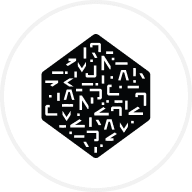
BAL
Balancer price
$1.8850
+$0.037000
(+2.00%)
Price change from 00:00 UTC until now

How are you feeling about BAL today?
Share your sentiments here by giving a thumbs up if you’re feeling bullish about the coin or a thumbs down if you’re feeling bearish.
Vote to view results
Balancer market info
Market cap
Market cap is calculated by multiplying the circulating supply of a coin with its latest price.
Market cap = Circulating supply × Last price
Market cap = Circulating supply × Last price
Circulating supply
Total amount of a coin that is publicly available on the market.
Market cap ranking
A coin's ranking in terms of market cap value.
All-time high
Highest price a coin has reached in its trading history.
Market cap
$116.73M
Circulating supply
61,923,152 BAL
Market cap ranking
--
24h high
$1.9810
24h low
$1.8410
All-time high
$75.0100
Balancer price performance in USD
The current price of Balancer is $1.8850. Since 00:00 UTC, Balancer has increased by +2.00%. It currently has a circulating supply of 61,923,152 BAL and a maximum supply of 96,150,704 BAL, giving it a fully diluted market cap of $116.73M. At present, the Balancer coin holds the 0 position in market cap rankings. The Balancer/USD price is updated in real-time.
Today
$0.037000
+2.00%
7 days
-$0.62500
-24.91%
30 days
-$0.59800
-24.09%
3 months
-$0.23600
-11.13%
Popular Balancer conversions
Last updated: 08/02/2025, 03:49
| BAL to USD | $1.8850 |
| BAL to PHP | ₱109.73 |
| BAL to EUR | €1.8262 |
| BAL to IDR | Rp 30,785.56 |
| BAL to GBP | £1.5199 |
| BAL to CAD | $2.6942 |
| BAL to AED | AED 6.9236 |
| BAL to VND | ₫47,709.44 |
About Balancer (BAL)
The rating provided is an aggregated rating collected by OKX from the sources provided and is for informational purpose only. OKX does not guarantee the quality or accuracy of the ratings. It is not intended to provide (i) investment advice or recommendation; (ii) an offer or solicitation to buy, sell or hold digital assets; or (iii) financial, accounting, legal or tax advice. Digital assets, including stablecoins and NFTs, involve a high degree of risk, can fluctuate greatly, and can even become worthless. The price and performance of the digital assets are not guaranteed and may change without notice. Your digital assets are not covered by insurance against potential losses. Historical returns are not indicative of future returns. OKX does not guarantee any return, repayment of principal or interest. OKX does not provide investment or asset recommendations. You should carefully consider whether trading or holding digital assets is suitable for you in light of your financial condition. Please consult your legal/ tax/ investment professional for questions about your specific circumstances.
Show more
- Official website
- Github
- Block explorer
About third-party websites
About third-party websites
By using the third-party website ("TPW"), you accept that any use of the TPW will be subject to and governed by the terms of the TPW. Unless expressly stated in writing, OKX and its affiliates ("OKX") are not in any way associated with the owner or operator of the TPW. You agree that OKX is not responsible or liable for any loss, damage and any other consequences arising from your use of the TPW. Please be aware that using a TPW may result in a loss or diminution of your assets.
BAL FAQ
How much is Balancer worth today?
Currently, one Balancer is worth $1.8850. For answers and insight into Balancer's price action, you're in the right place. Explore the latest Balancer charts and trade responsibly with OKX.
What is cryptocurrency?
Cryptocurrencies, such as Balancer, are digital assets that operate on a public ledger called blockchains. Learn more about coins and tokens offered on OKX and their different attributes, which includes live prices and real-time charts.
When was cryptocurrency invented?
Thanks to the 2008 financial crisis, interest in decentralized finance boomed. Bitcoin offered a novel solution by being a secure digital asset on a decentralized network. Since then, many other tokens such as Balancer have been created as well.
Will the price of Balancer go up today?
Check out our Balancer price prediction page to forecast future prices and determine your price targets.
Monitor crypto prices on an exchange
Watch this video to learn about what happens when you move your money to a crypto exchange.
Disclaimer
The social content on this page ("Content"), including but not limited to tweets and statistics provided by LunarCrush, is sourced from third parties and provided "as is" for informational purposes only. OKX does not guarantee the quality or accuracy of the Content, and the Content does not represent the views of OKX. It is not intended to provide (i) investment advice or recommendation; (ii) an offer or solicitation to buy, sell or hold digital assets; or (iii) financial, accounting, legal or tax advice. Digital assets, including stablecoins and NFTs, involve a high degree of risk, can fluctuate greatly. The price and performance of the digital assets are not guaranteed and may change without notice. OKX does not provide investment or asset recommendations. You should carefully consider whether trading or holding digital assets is suitable for you in light of your financial condition. Please consult your legal/ tax/ investment professional for questions about your specific circumstances. For further details, please refer to our Terms of Use and Risk Warning.By using the third-party website ("TPW"), you accept that any use of the TPW will be subject to and governed by the terms of the TPW. Unless expressly stated in writing, OKX and its affiliates (“OKX”) are not in any way associated with the owner or operator of the TPW. You agree that OKX is not responsible or liable for any loss, damage and any other consequences arising from your use of the TPW. Please be aware that using a TPW may result in a loss or diminution of your assets.































Socials